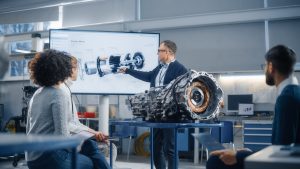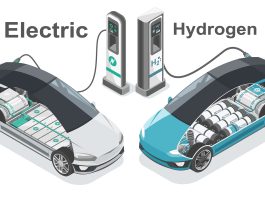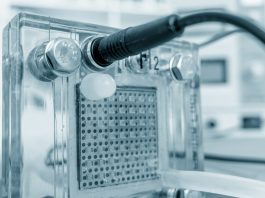The University of Nottingham has secured more than £70m to establish open access research facilities to help decarbonise future transport.
Secured based on a £14m award from the UK Research Partnership Investment Fund, the funding will allow the university to build on its internationally leading capabilities in decarbonising transport.
The fund is augmented by both public and private co-investment and will extend research in electrification, hydrogen, and manufacturing.
Chris Gerada, Professor of Electrical Machines and lead for strategic research and innovation initiatives at the University of Nottingham, said: “This is one of the largest funding injections the East Midlands has ever seen, and the opportunities are clear for new research to enable the UK to take an international lead in powering transport.”
Scale up of manufacturing processes
The facilities will enable scale up of several manufacturing processes for Electrical Machines and Drives developed in UKRI’s Driving the Electric Revolution Industrialisation Centre.
From March 2025, the university will work with industry partners to demonstrate electrical machines and drive manufacturing for a range of applications.
As well as this, the manufacturing facilities will be available for industry co-location to accelerate new technology, that is set to decarbonise transport, to market.

Rapid market introduction of decarbonised transport solutions
The facilities will test new powertrains, including cryogenic electrical machines and power electronics and systems fuelled by liquid hydrogen and other green fuels.
The programmes will also provide the opportunity for rapid market introduction of the latest research into decarbonised transport solutions where battery electric power is not viable.
The work will build upon previous investments
The university’s co-investment partners span a range of industries across aerospace, power generation, marine, and off-highway.
The facilities and programmes will be based at the university’s Jubilee Campus.
The work will build upon recent investments such as the Power Electronics and Machines Centre, the zero-carbon innovation centre funded by East Midlands Freeport. The facilities will also use previous investments from Driving the Electric Revolution, Research England, EPSRC, and D2N2.
Together, the investments strengthen the university’s position as part of the national network of research, infrastructure, and skills development.
Harry Malins, Chief Innovation Officer at the Aerospace Technology Institute, said: “The University of Nottingham’s proposed facility will address some of the key areas for which open-access solutions do not yet exist in the UK, including test infrastructure for hydrogen systems at altitude and at high power conditions.”









